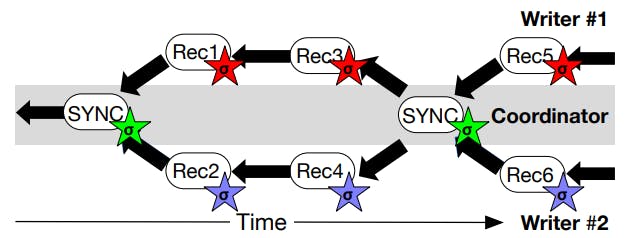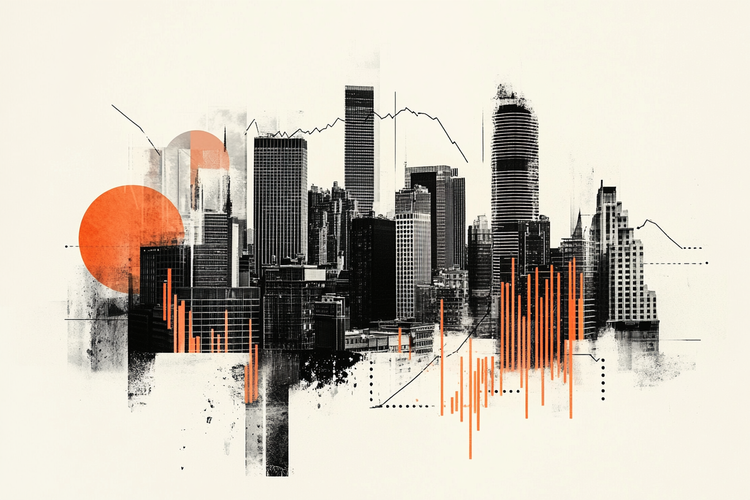Gen Z workers are experiencing America’s declining wage growth worse than other generations, JPMorgan finds


In a period of their lives when young people are poised to make career leaps and earn more money, they are instead falling behind past generations on the path to growing their finances, according to the JPMorganChase Institute.
A report published Wednesday found income growth, a metric showing how much one’s earnings have increased, slowed to its lowest level in nearly a decade—and Gen Z and young millennials are being hit the hardest. All age groups saw weaker wage gains since the pandemic, but for 25-to-29-year-olds, annual income growth slowed to 5.2% last month, one of the lowest levels since 2011, when JPMorganChase Institute began collecting data.
The slowdown does not bode well for young people, who rely on job hopping more than older generations to advance in their careers and accumulate wealth, according to George Eckerd, wealth and markets research director for JPMorganChase Institute and one of the report’s authors.
“We’re already seeing that young people are having a hard time getting a foothold on the homeownership ladder,” Eckerd told Fortune. “They’re delaying home purchases because they need to climb further up their career ladder to be able to afford it all, and that career ladder is getting flatter.”
“It’s not as steep a path as we would enjoy in the pre-pandemic hot labor market that prevailed kind of through the later half of the 2010’s,” he continued.
That flattening ladder means 15 million more adults under the age of 35 are living with their parents compared to a decade ago, a symptom of both median home prices skyrocketing 90% in the last 10 years, as well as a lack of steady and significant income. Federal Reserve Chair Jerome Powell warned at last month’s Federal Open Market Committee meeting young people and young graduates “are having a hard time finding jobs,” a result of a low-fire, low-hire environment, as well as the potential for AI to gobble up entry-level jobs. Unemployment rates for 16-to-24-year-olds reached about 10.5% in August, according to the Federal Reserve Bank of St. Louis data, nearly three-times as high as the rate for 25-to-54-year-olds.
How young people fare in the job market can be a good indication of what’s to come for the broader labor force, the JPMorganChase researchers noted. The U.S. labor market has continued to cool as a combination of AI fears and tariff-driven economic uncertainty creates an era of “job hugging.” Eckerd attributes stagnating labor to leftover anxiety from the pandemic labor shortage, which has led companies to think more conservatively about expanding jobs out of fear of positions not getting filled as they did earlier this decade.
Whatever the reason for more job hugging and less income growth, the reality is stark, U.S. Census data confirms: Income for Americans, adjusted for inflation, is essentially the same as it was five years ago, meaning many U.S. workers are not getting any richer.
Gen Z’s unique struggles
This young group of workers faces a particular set of obstacles that sets them apart from previous generations, Eckerd said. The housing market is uniquely poor as a result of both stubbornly high prices and mortgage rates. Combined with a rocky job market, that’s led young people to find hope in the stock market. Gen Z turned to investing at six times the rate of people their age a decade ago, according to JPMorganChase.
“People are accumulating stocks, even though valuations are high because they just don’t have enough money to get on the homeownership ladder,” Eckerd said. “So this is a change from prior generations.”
Eckerd, in part, attributes Gen Z’s retail investment fascination to the increased accessibility of technology and applications that have made it easier to pour money into markets. The generation also came of age in the pandemic-era saving boom that made investments—even speculative ones like cryptocurrency—a more attractive and accessible prospect than homebuying, he said. What Gen Z’s relationship to retail investment as a means of accumulating wealth means for their attitude toward the labor market remains to be seen.
But mending the job market so young people have an opportunity to grow their careers and spending power will ultimately depend on the Fed, which has to contend with both following through on promises of a soft-landing after the pandemic’s high interest rates, and tame inflation that continues to inch up, Eckerd noted.
“We’re definitely pointing in the wrong direction, so the labor market is continuing to soften,” he said. “That does not bode well for an increase in real gains.”





